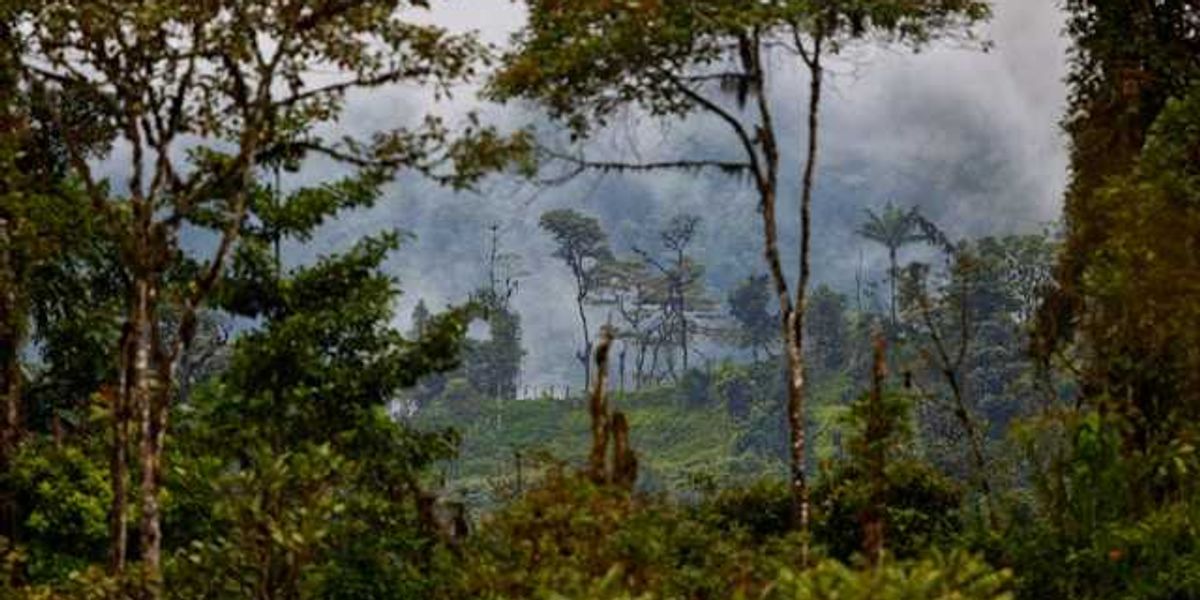transition
Indigenous concerns about the environmental and social costs of the green transition
Indigenous leaders express growing concerns about the environmental and social impacts of green energy projects.
In short:
- Leaders from across the globe gathered in New York at the United Nations Permanent Forum on Indigenous Issues.
- A report presented on the first day of the forum argue that the green economy perpetuates extractive practices, often ignoring Indigenous rights.
- The Indigenous leaders called for a ban on deep-sea mining as well as mining in sacred lands.
- Key international reports and conferences emphasize the disproportionate impact on Indigenous lands by projects aimed at combating climate change.
Key quote:
“The concept of a transition to a green economy maintains the same extractive logic that causes States and the private sector to overlook the collective rights of Indigenous Peoples in pursuit of national interests.”
— “Indigenous Peoples in a greening economy” UN report.
Why this matters:
Despite their sustainable label, green energy projects can still lead to ecological damage that particularly affects indigenous communities. This includes the disruption of wildlife, water sources and plant life that are essential not only to the biodiversity of these regions but also to the cultural practices and survival of indigenous peoples.
Balancing sustainability and economic needs in Southeast Asia's energy transition
Indonesia and Vietnam face the intricate task of aligning their green aspirations and financial strategies with the existing commitment to numerous coal-powered energy projects.
In short:
- Indonesia and Vietnam are struggling to align their sustainable energy goals with the economic implications of phasing out coal plants.
- Financial aid through the Just Energy Transition Partnership is pivotal, but the effective application of these funds remains a complex task.
- The existing and planned coal power infrastructure in these countries complicates their ambitious renewable energy targets.
Key quote:
"Energy transition is a matter of public interest. JETP is one of the initiatives within Indonesia's broader energy transition efforts. Therefore, we would like the public to have access to the draft before it is finalized in the hopes that we may receive as much input as possible."
— Edo Mahendra, Indonesia's JETP Secretariat head
Visit EHN's energy section for more top news about energy, climate, and health.
Time to kill off ‘net zero’
Fossil fuel companies are no longer denying the realities of climate change — which many of them reported on privately for decades. Instead, they’re attempting to position themselves as key players in the “low-carbon transition.”
Will California’s shift to electric vehicles work?
Clean energy transition gains speed, despite global tumult
Investment in wind and solar is set to outpace oil and gas drilling for the first time this year, according to one analyst — a milestone in the worldwide transition to clean energy that comes in spite of a spiraling energy crisis and calls to increase fossil fuel production.
Feeling overwhelmed about going all-electric at home? Here’s how to get started
You can’t completely banish fossil fuels from your home in one fell swoop, but some achievable plays are within reach.
Gas to offshore wind? N.Y. illustrates grid challenge
Oil and gas companies are asking New York to connect large volumes of offshore wind to the grid at a gas plant, underscoring a national push to transform old fossil fuel sites for renewable energy projects.









